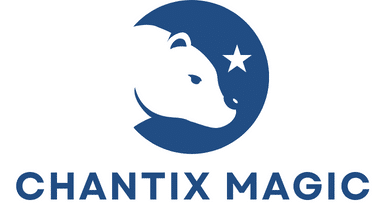Explore the storage solution, maintenance services and explanatory support
In an era where data is the backbone of enterprise operations, choosing the right storage solutions is paramount. From traditional disk and tape systems to cutting-edge hybrid clouds, the landscape of storage options is vast and varied. Coupled with robust maintenance and support services, these solutions ensure optimal performance and data integrity. Discover how to supercharge your data strategy with the ideal storage and support framework.
Comprehensive overview of data storage options
When examining various data storage options, it's important to consider disk, tape, object storage, and hybrid cloud solutions. Disk storage is widely used for its speed and reliability, making it ideal for active data. Tape storage provides cost-effective long-term retention, crucial for archiving. Object storage offers scalability and is beneficial for unstructured data, supporting modern applications through metadata and APIs.
Also to see : What Is the Impact of 5G on UK Telemedicine Services?
Cloud storage brings significant benefits, especially for enterprises. It offers scalability, allowing companies to expand storage as needed without hefty upfront costs. Cloud storage also supports data redundancy, ensuring availability and protection against loss. Additionally, it enables remote access, facilitating collaboration and flexibility.
Enterprise storage solutions combine these methods to provide robust, tailored setups. Key features include high performance, data encryption, and automated backups. These solutions are designed to handle vast amounts of data efficiently, ensuring business continuity and disaster recovery. By integrating multiple storage types, enterprises can achieve a balance of cost, performance, and security, optimizing their data management strategies.
Also read : What Are the Measures for UK Data Centers to Achieve Energy Efficiency?
Maintenance and support services for storage systems
Effective maintenance services for storage systems are paramount for ensuring data integrity and system performance. These services encompass routine inspections, software updates, and hardware checks to prevent potential failures. A proactive maintenance approach includes predictive technologies to foresee and mitigate issues before they impact operations.
Technical support for storage solutions ranges from basic troubleshooting to advanced problem-solving. Immediate assistance for connectivity issues or software malfunctions falls under first-line support. More complex concerns, such as system configurations and software bugs, are handled by second-line support, which involves in-depth research and expert collaboration.
Hardware maintenance for storage systems ensures reliability and longevity. This includes regular hardware diagnostics, firmware updates, and component replacements. Proper maintenance not only enhances performance but also minimizes downtime and extends the life of the storage infrastructure. For comprehensive support, consider exploring https://evernex.com/storage-solution/ for tailored solutions that align with your enterprise needs.
Enhancing data security and recovery
Effective strategies for secure data storage are essential in protecting against cyber threats. Implementing robust encryption methods and access controls ensures that only authorized users can access sensitive information. Regular security audits and vulnerability assessments help identify and rectify potential weaknesses in the system. Additionally, using advanced firewalls and intrusion detection systems can significantly reduce the risk of unauthorized access.
Disaster recovery planning is crucial for maintaining business continuity in the event of data loss. A comprehensive plan should include regular backups, both on-site and off-site, to ensure data can be restored quickly. Automated backup solutions streamline this process, making it more efficient and less prone to human error. Testing these recovery procedures periodically ensures their effectiveness and prepares the organization for any eventuality.
Data protection strategies also involve safeguarding critical information through data masking and tokenization. These methods replace sensitive data with non-sensitive equivalents during transactions, reducing the risk of exposure. Furthermore, maintaining redundant systems and failover mechanisms ensures that data remains accessible even during hardware or software failures, thus enhancing overall data integrity and availability.
